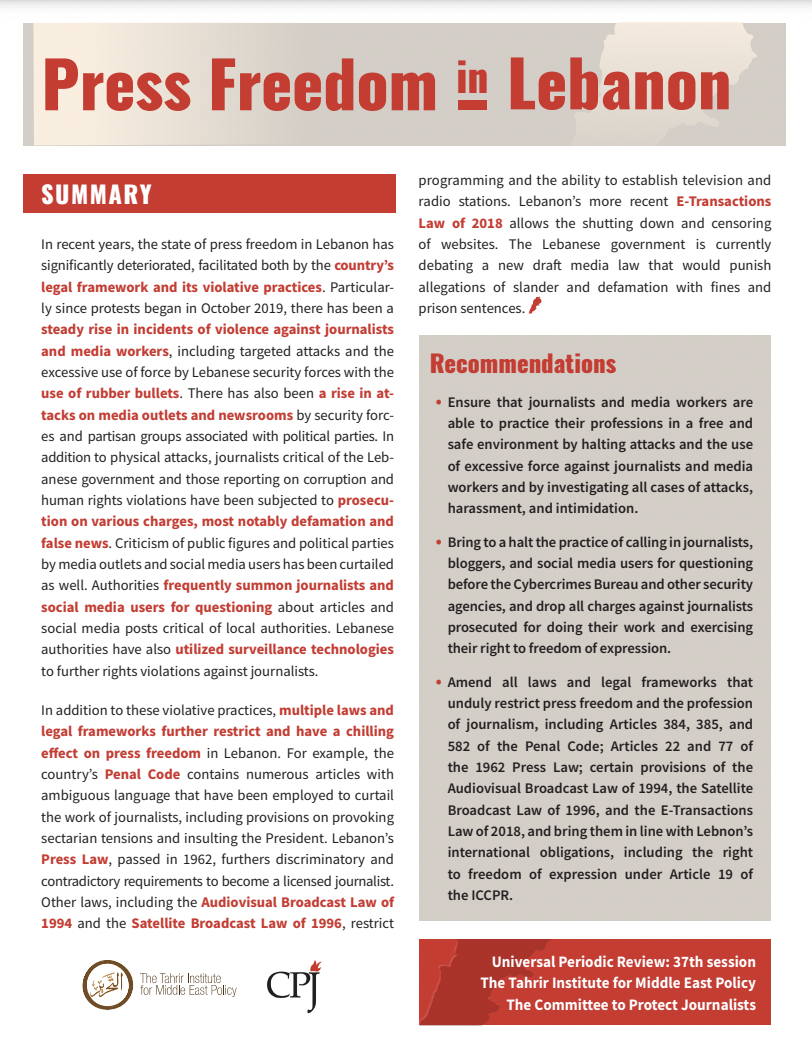Ahead of the third cycle of Lebanon’s Universal Periodic Review (UPR), the Tahrir Institute for Middle East Policy (TIMEP) and the Committee to Protect Journalists (CPJ) have issued a UPR Advocacy Fact Sheet that complements the joint stakeholder report that the two organizations published in July 2020.
The UPR is a mechanism of the United Nations created to examine the human rights performances of all UN member states; Lebanon’s UPR is set to take place on January 18, 2021.
Much like the joint stakeholder report, the advocacy fact sheet traces the significant deterioration of press freedom in Lebanon. The fact sheet documents:
- An expansive legal framework that has negatively impacted press freedom, facilitated the application of overly-broad language to censor and restrict content, limited the ability of journalists and outlets to obtain licenses, and set forth punishment for exercises of expression;
- A steady rise in incidents of violence against journalists and media workers, primarily at the hands of security forces but also civilians;
- Criminal defamation and false news prosecution of journalists reporting on issues of public interest and journalists critical of Lebanese authorities;
- The summoning for questioning of journalists and social media users about articles and social media posts critical of authorities; and
- The leveraging of surveillance technology to further rights violations against Lebanese and other journalists.
In an effort to comprehensively address the deterioration of press freedom in Lebanon, this fact sheet proposes recommendations relevant to both the country’s legal framework and its violative practices.
